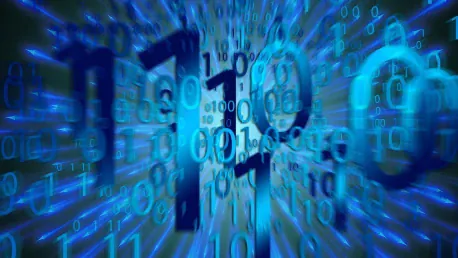In the age of digital information, the safety of our healthcare data has become a pressing concern, more so now after a significant cybersecurity breach impacted UnitedHealth and its subsidiary Change Healthcare. The magnitude of the breach, which compromised the sensitive data of approximately 100 million individuals, marked it as the largest healthcare data breach in history. This incident exposed medical information and Social Security numbers, alarming over a third of Americans and raising critical questions about the vulnerabilities in the cybersecurity frameworks of healthcare providers.
The Breach and Its Immediate Impact
The breach, which struck in February, was executed by the ransomware group ALPHV, also known as “BlackCat,” targeting Change Healthcare. This attack caused substantial disruptions in claims processing, affecting the U.S. healthcare sector on a wide scale. Change Healthcare, a pivotal player in healthcare payment processing, collaborates extensively with major insurance companies, including Aetna, Anthem, Blue Cross Blue Shield, and Cigna. The depth of the attack was revealed during federal investigations, uncovering that hackers stole a significant amount of sensitive data, including billing information, medical records, and Social Security numbers.
Change Healthcare’s response involved sending out notices to 100 million individuals regarding the data theft. However, it was only mandated to issue a public notice by June. In a federal hearing, UnitedHealth CEO Andrew Witty disclosed that the hackers exploited the company’s Citrix remote access service using stolen employee login credentials. UnitedHealth, in an attempt to mitigate damage, paid a $22 million ransom for a decryptor and a promise for the deletion of stolen data. Unfortunately, the hackers did not honor their end of the bargain, retaining the data and shutting down their servers, highlighting the perils of dealing with cybercriminals.
Identifying Key Security Vulnerabilities
One of the critical revelations from the federal hearing was that the exploited Citrix profile lacked multi-factor authentication (MFA), which facilitated easy remote access for the hackers. This oversight proved costly, as it allowed the hackers to infiltrate the system with stolen credentials. Post-attack, UnitedHealth has implemented mandatory MFA in its internal security policies, illustrating the crucial role that advanced security measures play in protecting sensitive information. This breach brings to light significant gaps in the cybersecurity protocols within the healthcare sector.
The growing digitization of medical services inherently increases the risk of privacy violations if proper cybersecurity measures are not rigorously put in place. Modern healthcare practices rely heavily on digital platforms for everything from patient records to billing and claim processing. Hospitals and clinics must adopt cutting-edge security protocols, such as data encryption, and ensure that staff are thoroughly trained in digital security practices. Human error often plays a substantial role in facilitating cyberattacks, and comprehensive training can mitigate this risk significantly.
The Broader Implications for the Health Sector
The repercussions of this significant breach are likely to extend beyond immediate data loss, with potential class action lawsuits from victims seeking compensation for compromised privacy and enhanced personal risks emerging. In the U.S., healthcare entities are legally obligated to protect patients’ data under laws like the Health Insurance Portability and Accountability Act (HIPAA), which imposes severe penalties on non-compliant institutions. This breach serves as a stark reminder of the dual-edged nature of technological advancements in healthcare.
While technology enables more efficient and effective medical services, it also brings substantial risks to patient privacy and data security if not adequately safeguarded. This incident underscores the pressing need for robust, well-enforced data protection laws and stringent cybersecurity protocols within the healthcare industry. As the healthcare sector continues to evolve and embrace digital transformation, the necessity for advanced security measures becomes increasingly apparent. Providers must stay ahead of cyber threats by continually updating their security practices and infrastructure.
Moving Forward with Enhanced Security Measures
In today’s digital age, safeguarding our healthcare data is more crucial than ever, especially following a massive cybersecurity breach that hit UnitedHealth and its subsidiary, Change Healthcare. This significant security breach compromised the sensitive information of around 100 million people, making it the largest healthcare data breach on record. The breach exposed medical records and Social Security numbers, causing alarm among over a third of Americans and sparking critical discussions about the weaknesses in the cybersecurity measures of healthcare providers. This incident has underscored the urgent need for robust cybersecurity frameworks to protect sensitive healthcare data. It highlights the importance of ensuring that healthcare providers have strong security measures in place to prevent such breaches in the future. Given the increasing frequency and sophistication of cyberattacks, investing in better security practices and technologies has become a top priority for the healthcare industry. This breach serves as a wake-up call, emphasizing that safeguarding personal information must be at the forefront of healthcare data management strategies.









